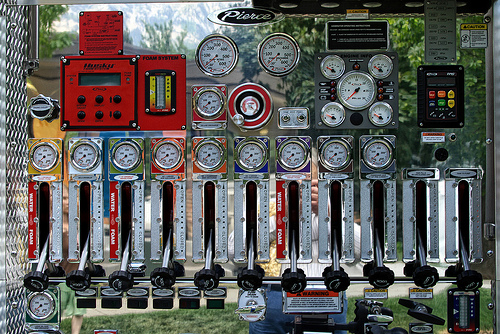An electrical engineering degree is a study of one of the most dynamic branches of engineering and focuses on the application of electricity, electronics and electromagnetism. As a career, electrical engineers work on a wide range of components, devices and systems, from tiny microchips to huge power station generators. Electrical engineers are the individuals who make the systems and create technologies to connect and process information. Florida Polytechnic University’s electrical engineer degree challenges students and rewards those who apply their knowledge towards research and application.

Besides “Is electrical engineering hard?”, I often receive frequent questions from prospective university students—our future electrical engineers. Here are the top five questions about electrical engineering courses:
- What are the classes and concepts covered in high school that best represent the classes
and concepts needed to get an electrical engineering degree?
Calculus at the senior level, AP or IB exams for calculus and sciences courses best represent what you can expect for college-level electrical engineering coursework.
- What are the most difficult classes that historically weed students out?
Those listed above. Unfortunately, not all students excel at the same studies. Some students who struggle through the required course work in math, physics and chemistry, may find that electrical engineering is not the right major for them. - How can a student overcome those tough classes?
As with most things in life, passion, dedication and perseverance can make a world of difference. Also, don’t be afraid to work closely with your classmates. Students all have various levels of knowledge and strength, and you can learn from each other as well as your professors. - What are the classes like?
Typically the classes involve in-class work as well as labs (and homework, of course). They are heavy in advanced mathematics, including Calculus, so be prepared! But at Florida Poly, professors, fellow students and our Academic Success Center are all resources that can help you to be successful.
- What are the most rewarding moments of an electrical engineer’s career?
After completion of an electrical engineering degree, a measure of success is always having a project culminate into a working design.
As with the majority of higher education studies, hard work and dedication help determine a student’s success throughout an electrical engineering degree. In addition, some of the most successful electrical engineering degree students are also extremely flexible, persistent and willing to try new things and think outside of the box.
Electrical engineers are the people who change the world. As an electrical engineering professor at Florida Polytechnic University, I can speak to just how important it is to learn from continuously innovative coursework and curriculum.
To learn more about studying electrical engineering, learn more about electrical engineering degrees.
Photo credit: arbyreed via photopin cc
Contact:
Lydia Guzman
Assistant Director of Communications
8638748450
